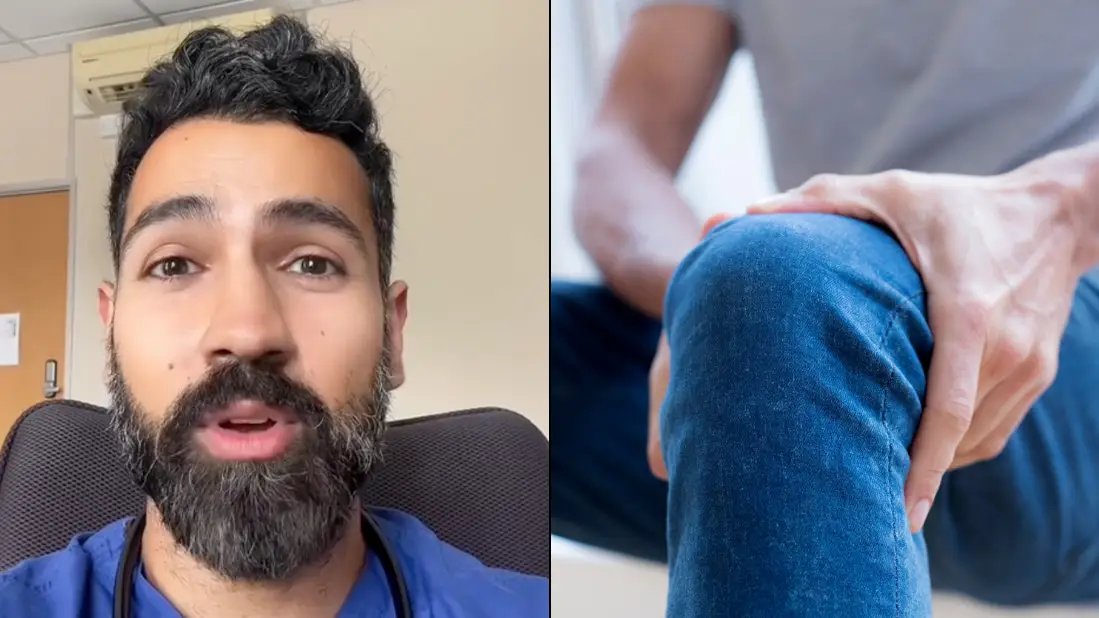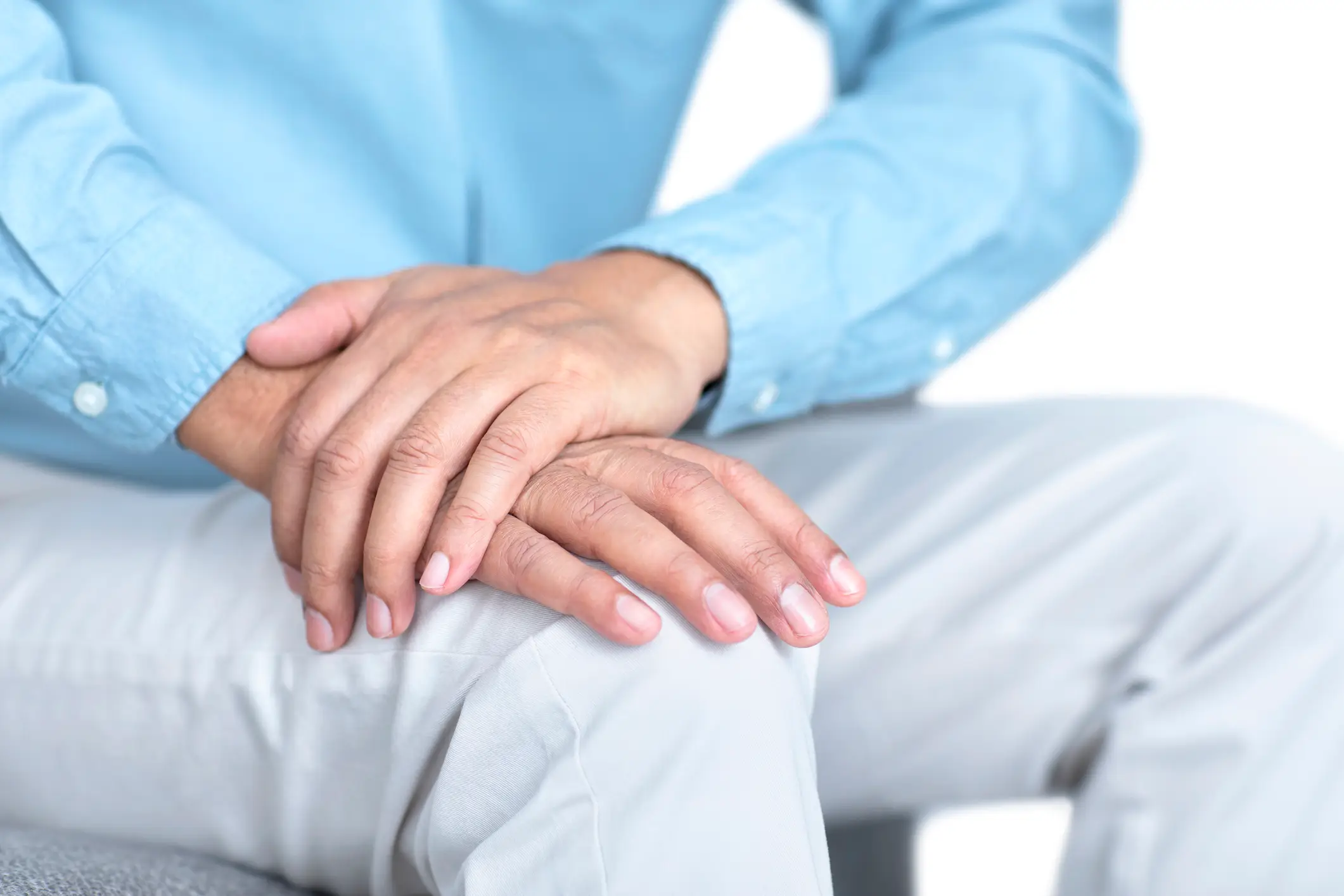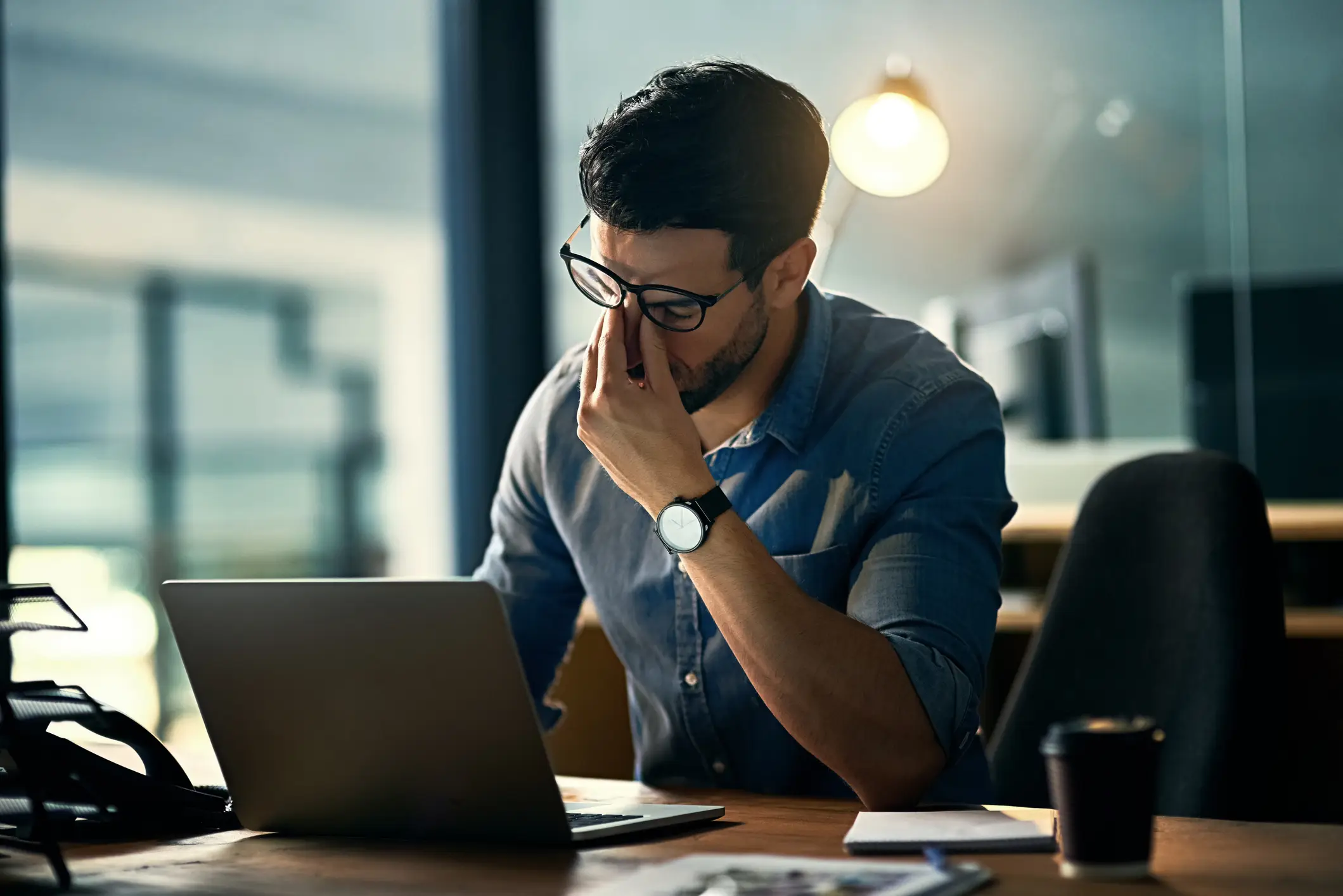
A doctor has revealed just what might be going on when those random leg twitches start to kick in.
Personally, I'll be doing a bit of work at my desk, or I'm out for some lunch, and my then leg will start to bounce up and down.
I've since noticed it in a lot of other people too, as Dr Ahmed claims that 'up to seventy percent of people will have this at some point in their lives'.
Thankfully, the UK based GP (@dra_says) has taken to TikTok to explain.
Advert

"Is this motor neurone disease? Well, no," he says.
"It's most likely something called benign fasciculation syndrome.
"Now, in this syndrome, you get muscle twitching, and it can be anywhere in the body, most commonly the thighs, face, arms, back, eyelids and calves.
"Some people can also get cramping in addition to the twitching.
"Now, you get this syndrome because a single peripheral nerve that controls the muscle is overfiring and is overactive."
The doctor admitted that 'we don't fully know the cause' but factors such as stress, lack of sleep, alcohol, severe dehydration, or exercise, can contribute.
He continued: "It's also linked to hypothyroidism and viral infections. As I mentioned, if it's twitching alone, there's unlikely going to be anything serious.

"However, if you have anything like muscle weakness, muscle atrophy, or difficulty speaking or swallowing, these are things you must get checked out for immediately because they could indicate motor neurone disease.
"However, if this is something new, you must get checked out to make sure there's nothing else going on.
"Now, to diagnose this and make sure there's nothing else going on, you need to come in and get a complete neurological examination, maybe a brain scan, an MRI scan of your spine, and certain blood tests as well, like potassium, sodium, calcium, and thyroid function.
"Now, there's limited research on the treatment options available.
"However some things that could help are vitamin b complex and calcium channel blockers so the main thing is if this is new, please go to your doctor and get checked out and if it is benign fasciculation syndrome the key thing is avoiding any triggers and making sure there's no underlying cause."
How to stop a twitch
According to the NHS, these are the best ways to stop a twitch:
- get plenty of rest
- try to find ways to relax
- stretch and massage any muscles affected by cramps
- try not to worry about it – a twitch is usually harmless and worrying can make it worse